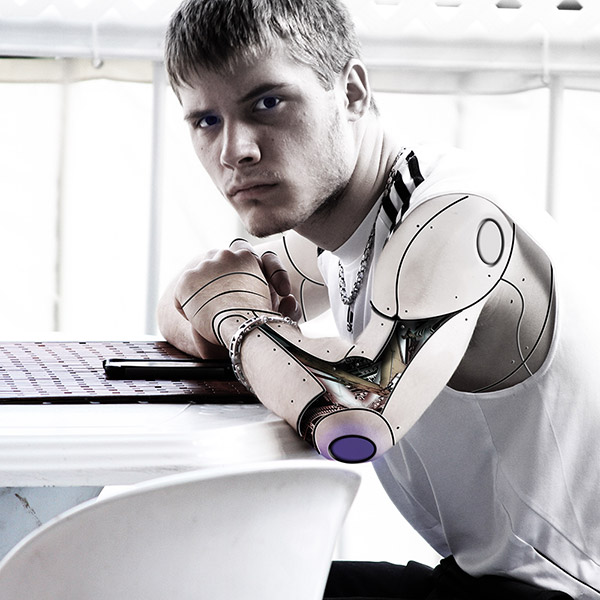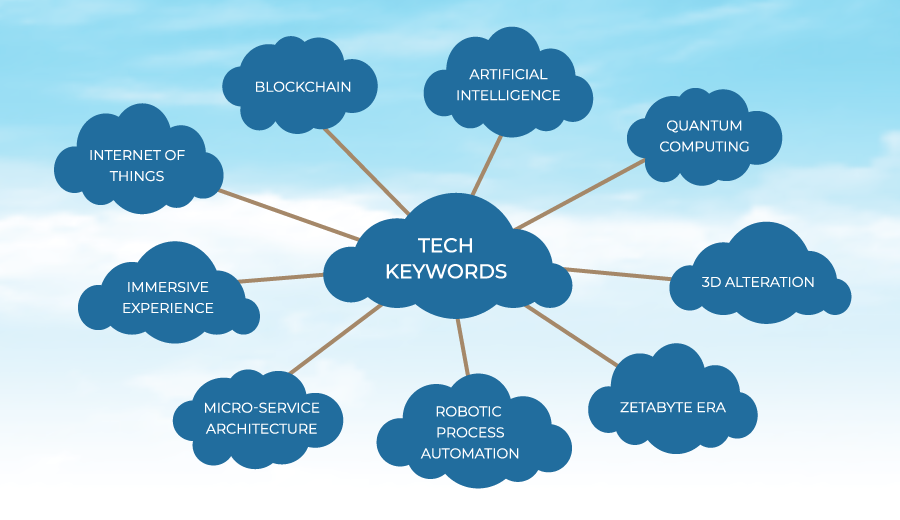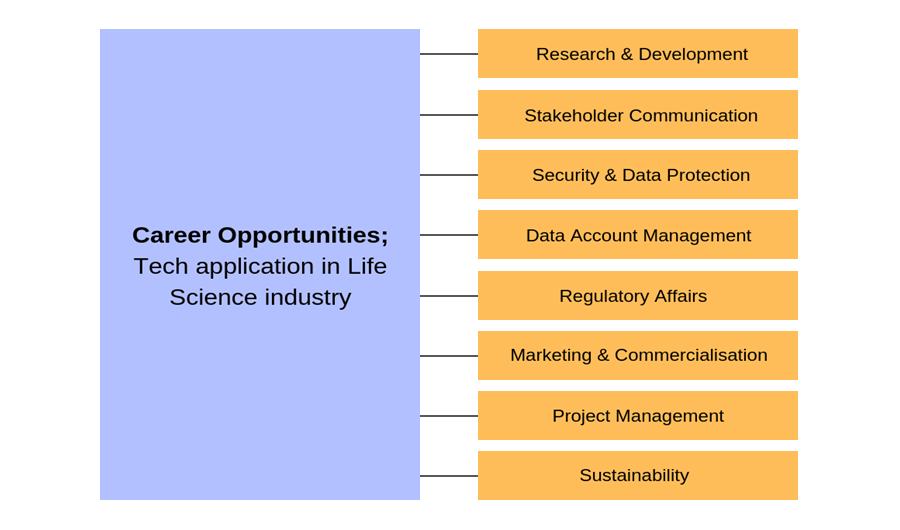It is a known fact that in both professional and personal areas of our lives, we are constantly experiencing changes influenced and triggered by technology. This is inevitable. Everyday we see new apps on mobile devices, new software and upgrades applicable to the performance of different functions in academia, research, healthcare, data management, financial services, cybersecurity, electoral records, data protection and the list goes on.
Technological advancements and applications are going one way, and that is up. The associated excitement and oftentimes ambivalence arising from this phenomenon are mostly focused on the impact in the use of personal data such as genetics and personal health data by companies mainly for the research and production of new and innovative solutions to healthcare needs. It begs the question of privacy and how much we are willing to give up for the advancement of medical research. Hence data protection has become a big deal and one that CRO’s (Clinical Research Organisations) and Pharmaceutical companies are increasingly mindful of.
The Life Sciences Sector is constantly evolving, as it should. This is largely due to the need to innovate and apply new technology, be it in the area of clinical research, new product/drug development, medical devices or drug delivery. Innovation is a necessity for companies big or small in this sector as it is the only way that they remain viable and competitive.
Smart Technologies
 The Life Sciences industry has been positively impacted by advancements in technology especially in areas of Artificial Intelligence (AI) and Robotic Process Automation.
The Life Sciences industry has been positively impacted by advancements in technology especially in areas of Artificial Intelligence (AI) and Robotic Process Automation.
The use of smart technology makes for quicker and more accurate data analysis and actionable insights for researchers leading to the development of new and improved healthcare products. The use of these technologies also makes it possible for companies to interact effectively with users whether they are regulatory authorities, hospitals, healthcare workers or patients. This feeds into the identification of new areas for research, improvements of existing products, new and more accurate diagnostic equipment and products (applied directly by patients from the comfort of their homes and transmitted to relevant healthcare providers).
AI also helps with the identification of new products and processes in the fight against endemic and terminal illnesses, the development of new therapies, and efficient drug delivery.
The application of such technology in the life science sector begs the question; what are the career prospects of those currently working within the sector who are looking for relevant career advancement? What about those individuals exploring a change in career as more and more of their tasks and functions become automated, or those looking to attain leadership roles in the life science industry?
This should be an exciting time for professionals in this sector or those aspiring enter the life science industry. Technological advancement and application do not have to translate to the end of human involvement in the research, production and delivery process. As long as the end users are people or animals (veterinary products), there will always be the need for human interaction in the process of delivery.
In exploring career opportunities there are certain technological keywords that should form the basis of your career progression plans. These are terms that we are increasingly familiar with in all facets of business, personal and social life. They are the basis upon which technological applications are built. An understanding of these keywords and how they impact the life science industry will help in guiding those looking to upskill. It will provide relevant information required to analyse current skillsets, experience, qualifications and how they can be combined with technology to advance one’s relevance in an industry that is increasingly technology driven.
Key IT Terms
Artificial Intelligence
considering the application of Smart health-boosting apps, the use of AI is going to see an increase in the future. This will translate to the demand for Engineers, Researchers and Project Managers with the necessary technological know-how needed to innovate, produce and deliver. As a career progression plan, those within the industry must not rest on their oars if they want to keep up with the waves of change. Constant changes in technology demands constant upskilling, this is the sure path to career relevance in the future.
The application of technology in the pharmaceutical and related sectors in Central Eastern Europe is growing. It is inevitable that the trend is increasingly influencing the regulated manufacturing sector with cloud computing and predictive analysis taking the lead while AI, robotic process automation, blockchain technology are not as widely applied for now. This could be attributed to issues relating to regulation, network collaboration and security in the case of blockchain technology.
Having said that, the career prospects for the sector is positive for those who have and are open to acquiring technical skills relevant to the industry. One of the focuses in pharma market development is delivery of medical products and drugs by internet shops, anticipation is that specialists, who may arrange business process in this segment, will definitely be in high demand.
Alliances between global and local producers for contract manufacturing will increase demand for technology transfer leaders. Managers who can search for strategic partners, also have a lot of career prospects
- Yulia Zabazarnykh - Leader of the Life Science Practice Group for Central Eastern Europe, Kontakt - InterSearch Russia.
The Internet of Things
with the use of IOT in drug application, data collection and a fast-moving market for innovative, efficient and accurate healthcare products, new innovations like gene therapy, 3D-printing the likes are becoming relevant and prevalent. There is and will continue to be need for specialists in Biotechnology who have the technical skills to amalgamate new technology with existing medical treatment protocols. Opportunities will abound in the area of Oncology, Gene therapy, invasive and non-invasive surgeries, drug delivery, and many more.

firms in the industry are beginning to look beyond novel drugs and devices, becoming more focused on the creation of new business models to also provide data-driven health services that are more convenient and consumer-focused.
Technology is a major driver in the implementation of this strategic shifts.
One of the major areas to consider in exploring a career progression or change in the life sciences sector will be in Research. The rise of CRO’s has immense benefits for those looking to advance their training and technical skills to complement their existing healthcare and life science qualifications. There is currently a rising awareness of the key role that CROs play in this sector, however, the traditional researcher will no longer be competitive in a few years. There is the need to upskill not only in the areas of clinical research, but also in the areas of data management, patient management, research outcome commercialisation and marketing as well as regulatory affairs.

Technology in the healthcare sector in India is growing at a steady pace and we are sure to experience some technological marvels in the future. This is definitely the era of tech-enabled change. The healthcare sector in India operates under huge pressure and medical products and devices based on new technologies such as AI, machine learning, IoT and radio frequency identification (RFID) among other will help in improving clinical outcomes.
The abundance of opportunities, scope for growth and innovation triggered by these technologies is one that companies in the life science sector are leveraging in order to remain competitive while rising to the challenges and demand of the markets in the region. Today, organisations and professionals that evolve with and adopt technological advancements will be catalysts of growth in the healthcare industry.
- Lotika Mahindra, Leader of the Life Science Practice Group, Asia PAC, InterSearch India.
Blockchain
it is argued that blockchain will unify information from participating groups in a network, meaning that regulators and industry participants, researchers and developers can all use the same set of health care records and clinical trial data. This is with the view of improving data flow, and increasing efficiency relative to cost. Blockchain is a behind the scenes application, the end result of which is to help patients attain better healthcare. Owing to its characteristics, Blockchain lends itself to data accuracy, record keeping and data sharing which makes for ease of access by all stakeholders in the network. Another advantage of this technology for patients is that medical practitioners have access to reliable data and patient history thus making for quick, accurate diagnosis and treatment.
According to Deloitte in its 2019 Global life sciences outlook,
while digitisation brings in ample opportunities, it also exposes pharma companies to vulnerabilities like cyber threats, especially in a scenario where interdependency and collaboration are scaling. With digitisation of tools and processes, patient expectations too have risen. Stakeholders should create coherent and meaningful experiences through the entire chain of patient interactions across all phases - from R&D and product launch to commercialisation.
Opportunities abound for career progression in the life science industry with the use of blockchain technology. For example, if patients have the opportunity of monetising access to their personal data, permitting companies access to ‘blocks’ of their data and medical record for research purposes, this will create career opportunities for consulting and data account management, cloud computing, network security, data security and management. Roles will abound for those with good commercial skills who are also skilled and knowledgeable in blockchain technology.
Sustainability
Sustainable business practices, sustainable production processes, sustainable sourcing, sustainable energy, environmental sustainability, corporate social responsibility; these are all buzz words in the life science sector. The life science industry plays a significant role in the generation of greenhouse emission as globally, pharmaceuticals and medical devices manufacturing contribute a significant proportion of healthcare associated greenhouse gas (GHG) emissions. Companies in these sectors are increasing their exploration for the generation of clean energy. As well as the provision of opportunities for the revolutionalisation of healthcare and medical products, promoting sustainable sourcing and processes is an area that companies in the sector are giving considerable attention. With governments and regulatory bodies emphasising the need for compliance, companies are increasing their budget on sustainability-related strategy and implementation.
Firms in the life sciences industry are not only talking the talk, but putting themselves in the spotlight and showcasing how their processes and actions promote and demonstrate strong sustainability efforts through technology and transparency. This is informed by the awareness that the future generation of the workforce will be one that is conscious of the effects of climate change and companies will need to make themselves attractive to this group of future talent. A good starting point will be good and solid track record of sustainable and environmentally friendly processes and practices.
Opportunities in the areas of sustainability should be explored. Increasingly, there are roles in all sections of the supply and value chain as well as opportunities in creating innovative practices that strengthen sustainability. Demand will continue to grow for professionals in these areas.

Life Sciences Group Leader
As the industry evolves in line with new technologies and regulatory frameworks, Ireland will continue to experience the impact of disruptive technology in the sector due to the large presence of pharmaceutical and medical device companies in the country.
To this end, government and relevant agencies, third level academic institutions and companies are investing heavily to ensure that necessary frameworks required for the new ecosystem are in place. This will position the country not only as the location of choice for companies in the sector, but also ensure the availability of relevant technical skilled manpower.
- Micheál Coughlan, Managing partner InterSearch Ireland and Life Science Practice Group Leader Europe.
Below are some possible options for career growth as technology application will see the need for more technical savvy specialist and leaders. They will be needed to guide and implement strategies and manage the inevitable impact that technology will bring to the industry.
Opportunities in Life Science Sectors
In conclusion, the rate of change in our modern world is accelerating rapidly due to technology, more so in the life science sector. However, by keeping pace with these changes and their impact, you can take advantage of opportunities provided as a result of the application of technology. You can identify where your current skillsets will best suit future needs in the industry. The onus is on the professional to monitor, assess and evaluate their career prospects and acquire relevant training in order to position themselves for leadership roles of the future. Oftentimes, the reaction to the application of technology in industry is that it will take jobs from humans, however it has been proven that technology does create jobs. Identifying one’s strengths and skills and combining them with technology is a positive step towards crafting future career pathways.
By Clementina Mustapha,
Executive Search Researcher - InterSearch Ireland
 About Author
About Author
Clementina Mustapha - InterSearch Ireland
Clementina joined InterSearch Ireland in November 2016 and is one of the company’s Executive Search Researchers. With a combination of a good background in academic research and interest in industry and organisational leadership, Clementina works with the InterSearch Ireland Public Sector Division to identify relevant talents and facilitate the establishment of mutually beneficial relationship between prospective leaders and their desired organisation.
About InterSearch
InterSearch Worldwide is a global organization of executive search firms consistently ranked amongst the largest retained executive search practices in the world. InterSearch is currently operating with over 90 offices in more than 50 countries. Established in 1989 in the UK, InterSearch prides itself on carefully selecting the best executive search firms to partner as a member of a global entity with high integrity, transparency, and depth of experience. InterSearch prides itself on having a global reach but local impact.
For additional information, please visit www.intersearch.org.
Media contact: This email address is being protected from spambots. You need JavaScript enabled to view it.











